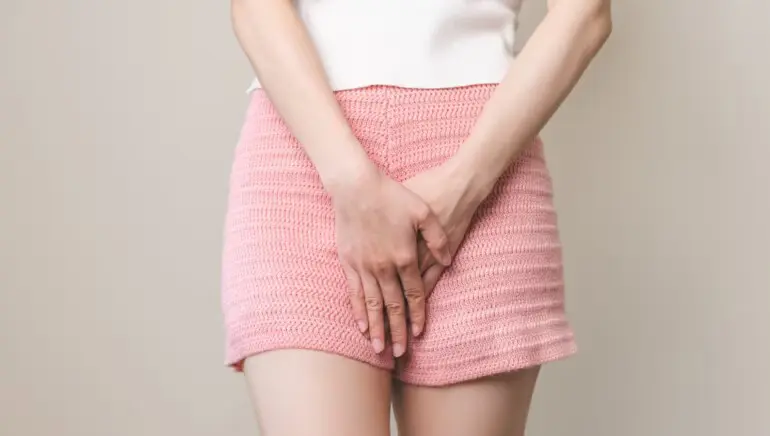Understanding Menstrual Hormones: Effects and Management
Hormonal fluctuations during periods induce mood swings before and during your period, as well as cramping. Here’s how it works and what you can do.
Your menstrual cycle affects your hormones in a variety of ways. Image credit: Adobe Stock.
Do your moods alter throughout your periods? Is it tough to manage the ebb and flow of your emotions during periods? A woman’s body undergoes regular, natural changes during her menstrual cycle. The first day of your period signifies the start of your menstrual cycle, while the last day signals its end. You may notice a sequence of changes in your body and mind that pique your interest in how they occur. So, let’s take a closer look at the usual hormonal changes that you should be aware of throughout your period.
Menstrual Hormones
Do periods produce hormonal changes?
The menstrual cycle is linked to hormonal changes in the body. Dr. Nirmala M., an Obstetrician, Gynaecologist, and Fertility Specialist, says that the menstrual cycle involves complicated hormonal interactions that can have a variety of physiological and emotional impacts on the body. Your menstrual cycle, in reality, influences your hormones in several ways, at various stages, including the menstrual phase, the follicular phase, the ovulation phase, and the luteal phase.
Periods have an influence on your hormones at all phases. For example, despite its soothing impact on the body, the progesterone hormone (which is required for uterine lining maintenance in the event of a prospective pregnancy) can trigger premenstrual syndrome-like symptoms such as irritability and despair. Similarly, a rise in estrogen during the follicular phase promotes uterine lining repair after menstruation, as well as mood control, skin health, and bone density. Hormonal changes throughout the menstrual cycle improve reproductive health and help regulate mood swings, according to the expert. They are consequently necessary, and it is critical to comprehend them.
[web_stories title=”false” excerpt=”false” author=”false” date=”false” archive_link=”true” archive_link_label=”” circle_size=”150″ sharp_corners=”false” image_alignment=”left” number_of_columns=”1″ number_of_stories=”5″ order=”DESC” orderby=”post_title” view=”circles” /]
Stages of the Menstrual Cycle
Your period impacts your hormones at every stage of your menstrual cycle. It is critical to understand the various stages of your menstrual cycle and how they impact your hormones. Oestrogen and progesterone are two hormones that influence your menstrual cycle. It affects the woman’s body, emotions, and reproductive cycle during all four stages of the menstrual cycle, including:
Also Read: Menstrual Cycle - MSD Manual Consumer Version
1. Menstrual phase.
This is the initial stage of the menstrual cycle, during which you will get your period. It begins when an egg from the preceding cycle is not fertilized. The levels of the hormones estrogen and progesterone may also fall. Both of these hormones operate together to thicken the uterine membrane in preparation for healing. Because pregnancy does not occur, the lining is lost via the vagina at this stage. Your body excretes a mixture of blood, mucus, and tissue from the uterus. You may experience mood fluctuations during this stage of the menstrual cycle.
2. follicular phase
This phase begins with the menstrual phase, on the first day of your menstruation, and concludes with ovulation. This stage begins when your pituitary gland secretes follicle-stimulating hormone (FSH), which stimulates your ovaries and produces 5-20 little sacs called follicles, each containing an immature egg. The healthiest of these eggs develop and induce menstruation. The usual follicular phase lasts 11 to 27 days, depending on your menstrual cycle. In the event of pregnancy, the ovarian follicles generate estrogen during the follicular phase, which allows the uterine wall to thicken to sustain the fetus.
3. Ovulation Phase
Your pituitary gland secretes luteinizing hormone (LH) in response to growing oestrogen levels during the follicular period. This marks the beginning of your ovulation phase. Ovulation is the time during which an ovary develops a mature egg. The eggs then migrate down the fallopian tube to the uterus. This is when you have the best chance of becoming pregnant. If you observe a little increase in body temperature or an egg white discharge, this might indicate that you are ovulating. If your cycle lasts 28 days, ovulation happens around day 14.
4. Luteal phase.
The luteal phase occurs immediately following the ovulation period. The primary goal of this phase is to prepare the uterus for a potential pregnancy. During this phase, an egg travels from your ovary to your uterus via the fallopian tube. If sperm fertilizes an egg, it is implanted in your uterine lining, resulting in pregnancy. If the egg does not fertilize, you will not get pregnant, and your period will arrive. This phase lasts around 14 days and ends when you get your period. This is the stage in which you suffer premenstrual syndrome (PMS). The symptoms of PMS include:
Symptoms may include
- bloating,
- headaches,
- mood changes,
- cravings,
- sleep issues,
- weight gain,
- swollen or sore breasts
- discomfort.
- Sexual desire changes.
Menstrual Hormones
You may experience food cravings during the luteal phase of your menstrual cycle. Image courtesy of Shutterstock
Hormonal changes with each stage of your menstrual cycle.
Oestrogen and progesterone are the primary hormones involved in each phase of the menstrual cycle. Other hormones, like as luteinizing hormone, may also undergo alterations during certain periods. During each menstrual stage, you may experience the following hormonal changes:
Menstrual Hormones
Understand how your menstruation affects your hormones. Image credit: Adobe Stock.
1. To begin, progesterone and estrogen work together to thicken the uterine wall in preparation for repair, possible pregnancies, or the ejection of unneeded uterine lining. This may affect your disposition.
2. During the monthly cycle phase, both of these hormones cause contractions in the uterine walls to evacuate the unneeded lining. In order to develop and direct a pregnancy, the ovarian follicles release estrogen during the follicular phase, allowing the uterine wall to thicken to sustain the pregnancy.
3. During the ovulation period, oestrogen becomes the primary hormone that causes the woman’s mood and desire to peak in time with the degree of fertility.
4. The luteal phase is the period during which both hormones are at rest. However, this is the time when you may get premenstrual syndrome.
How do hormonal changes during menstruation effect daily life?
Hormonal changes that occur at various periods of the menstrual cycle may differ. They can cause various physical, emotional, and behavioral changes. This includes:
Also Read: Menstrual Hormones
Vaginal discharge that is pink might have several reasons. Picture sourced from Adobe Stock
- Hormonal oscillations can trigger food desires, leading to typical appetite changes. Hormonal changes during periods often
- lead to social seclusion. Mood swings can lead to anxiety and despair owing to hormonal variations. * Physically, one may
- have weariness and bloating, which might disrupt everyday activities.These changes are often caused by fluctuations in the body’s estrogen and progesterone levels.
What is the most typical hormonal alteration that happens during a period?
Menstrual Hormones
One of the most prevalent side effects of hormonal changes during menstruation is mood swings. “Premenstrual syndrome-like symptoms such as irritability, anxiety, and sadness are typical during the luteal phase, which occurs before menstruation begins. Similarly, following ovulation, some women may report increased libido and improved mood when estrogen levels rise. Physical discomfort, such as migraines or cramp pain, might accompany the commencement of one’s period. All of these physical and psychological changes can be traced to hormone fluctuations during the cycle,” says Dr. Nirmala
Is there a method to regulate hormonal fluctuations during periods?
Menstrual Hormones
While certain hormonal changes are unavoidable, they can be controlled by implementing some simple lifestyle adjustments, as recommended by the expert.
1. Regular exercise and adequate sleep can enhance one’s mood while also regulating quick variations.
2. A nutritious diet high in fruits, vegetables, and whole grains can help you regulate your hormones.
3. Drink more water to alleviate symptoms of hormonal swings such as bloating and exhaustion.
4. In extreme situations, pharmacological intervention, such as the use of selective serotonin reuptake inhibitors (SSRIs), can be utilized to control PMS and PMDD symptoms.
5. Avoid consuming excessive coffee or alcohol.
Here are some modifications you may make to your routine. However, if you encounter excessive hormonal changes during periods that make it impossible to carry out your everyday activities, you should consult your doctor.
Health Conscious Plus
Welcome to Health Conscious Plus Find health insights, disease management tips, meal plans, and mindful living strategies for a healthier life.




